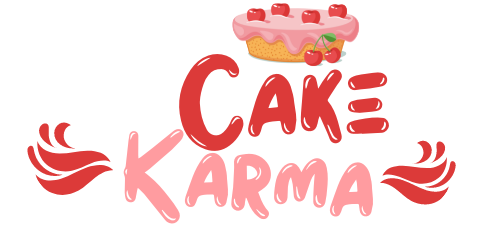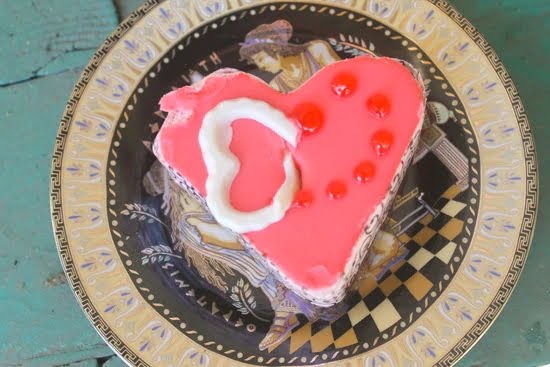Cake decorating is a highly sought-after skill that allows individuals to showcase their creativity and artistic abilities while creating delicious treats. Whether you dream of becoming a professional cake decorator or simply want to impress your friends and family with stunning desserts, getting training in cake decorating is essential.
In this article, we will explore the benefits of pursuing training in cake decorating and guide you through the process of finding the right program to kickstart your journey in this exciting field.
One of the main reasons why cake decorating is such a popular skill to learn is its versatility. From birthdays and weddings to holidays and special events, there are endless opportunities to create beautiful cakes that leave a lasting impression on others. Additionally, mastering cake decorating allows individuals to turn their passion into a potential career path, opening doors to opportunities such as working in bakeries, patisseries, or even starting their own business.
Now that we’ve established why getting training in cake decorating is important, let’s delve into the benefits of pursuing formal education or training programs in this area. Proper training not only equips individuals with essential skills but also provides them with a deeper understanding of techniques, flavor combinations, design principles, and industry standards. This knowledge lays a strong foundation for creating visually appealing and professionally finished cakes that exceed expectations.
By pursuing formal training in cake decorating, you gain access to invaluable resources and guidance from experienced instructors who can provide personalized feedback and support throughout your learning journey. Additionally, structured training programs often offer hands-on practice opportunities, allowing you to hone your skills under expert supervision. With these insights in mind, let’s now explore the various options available for acquiring training in cake decorating.
Researching Available Options
When considering training in cake decorating, it is important to thoroughly research the available options. This section will explore the different types of cake decorating training programs and where to find them.
Different Types of Cake Decorating Training Programs
There are various types of cake decorating training programs to choose from, catering to different learning preferences and goals. Traditional culinary schools and community colleges often offer cake decorating courses as part of their culinary arts or baking programs. These programs may provide a well-rounded education that covers not only cake decorating techniques but also other fundamental aspects of baking.
For those who prefer a more flexible and self-paced approach to learning, online platforms and websites provide virtual cake decorating training. These programs often offer video tutorials, downloadable resources, and interactive forums for students to connect with instructors and fellow learners. Online training allows individuals to learn at their own convenience, making it an ideal option for busy schedules or those who may not have access to in-person classes.
Local Culinary Schools and Community Colleges Offering Cake Decorating Courses
One way to find cake decorating training programs is by researching local culinary schools and community colleges in your area. Check their course catalogs or websites for information on any cake decoration-specific courses they offer. Reach out to the admissions office or program coordinators to inquire about enrollment procedures, tuition fees, and any prerequisites for the courses.
By attending classes at a local institution, you have the advantage of in-person instruction from experienced instructors who can provide hands-on guidance during practical exercises. Additionally, these institutions may have established relationships with industry professionals or businesses that could lead to networking opportunities or internships.
Online Platforms and Websites Providing Virtual Cake Decorating Training
If attending classes at a physical location is not convenient or accessible for you, online platforms and websites can provide an alternative route for cake decorating training. Do some research into popular online platforms that offer comprehensive cake decorating courses. Look for programs that have positive user reviews and recommendations, as these indicate the effectiveness of the training.
Online training allows you to learn at your own pace and convenience, without the constraints of a fixed schedule. Look for platforms that provide clear learning objectives, demonstrate techniques through video tutorials, and offer opportunities for feedback and interaction with instructors or peers.
Understanding the Essential Skills
When it comes to cake decorating, there are several essential skills that aspiring cake decorators need to learn. These skills not only ensure that cakes look visually appealing, but also contribute to their taste and overall quality. Here are some key skills that individuals should focus on when pursuing training in cake decorating:
- Icing Consistency: Achieving the right icing consistency is crucial for creating smooth and even finishes on cakes. Whether it’s buttercream or royal icing, understanding how to adjust the consistency to achieve different effects is a fundamental skill in cake decorating.
- Fondant Handling: Fondant is a versatile medium commonly used in cake decoration. Learning how to properly handle fondant, roll it out smoothly, and cover cakes without any creases or tears is an important skill for achieving a professional-looking finish.
- Piping Techniques: Piping involves using a pastry bag fitted with various tips to create intricate designs such as borders, flowers, and lettering on cakes. Mastering piping techniques requires practice and precision, as well as understanding the correct pressure and angle for different designs.
- Flavor Combinations: Cake decorators must have a good understanding of flavor combinations to ensure that not only do their cakes look beautiful, but they taste delicious too. Knowledge of which flavors complement each other can enhance the overall experience for those enjoying the finished product.
- Cake Design Principles: Creating visually appealing cake designs involves understanding basic design principles such as balance, proportion, color theory, and texture. Having knowledge of these principles enables decorators to create harmonious and eye-catching designs that meet their clients’ expectations.
Developing proficiency in these essential skills is crucial for anyone looking to excel in the field of cake decorating. While theoretical knowledge may provide a foundation, practical experience through hands-on training is vital for honing these skills effectively.
| Skill | Description |
|---|---|
| Icing Consistency | Achieving the right consistency for different types of icing to create smooth and even finishes on cakes. |
| Fondant Handling | Properly handling fondant, rolling it out smoothly, and covering cakes without creases or tears. |
| Piping Techniques | Using a pastry bag with different tips to create intricate designs such as borders, flowers, and lettering on cakes. |
| Flavor Combinations | Understanding which flavors complement each other to create delicious and harmonious cake creations. |
| Cake Design Principles | Applying basic design principles like balance, proportion, color theory, and texture to create visually appealing cake designs. |
Choosing the Right Training Program
When it comes to pursuing training in cake decorating, selecting the right program is crucial. With so many options available, it’s important to consider several factors before making a decision.
Reputation and Experience of Instructors or Institutions
One of the key factors to consider when choosing a cake decorating training program is the reputation and experience of the instructors or institutions offering the courses. Look for programs that have experienced instructors who have a strong background in cake decorating. They should have industry experience and be knowledgeable about current trends and techniques.
Flexibility of Scheduling and Availability of Hands-on Practice Opportunities
Another important factor to consider is the flexibility of scheduling. Determine if the program offers classes during times that are convenient for you. Additionally, find out if there are opportunities for hands-on practice. Working with real cakes and decorations is essential for honing your skills. Look for programs that provide ample opportunity for practical application through hands-on projects or internships.
Program Length and Curriculum
Consider the length of the program as well as its curriculum. Some programs may be more intensive and shorter in duration, while others may be longer with a more comprehensive curriculum. It’s important to choose a program that aligns with your goals and fits your schedule.
Cost and Financial Assistance
Finally, it’s crucial to consider the cost of the training program. Research different programs to compare prices and what they offer. Additionally, check if there are any grants or scholarships available that can help offset costs. Many culinary schools or institutions offer financial assistance options or installment plans for their students.
By taking into account these factors – reputation and experience of instructors, flexibility in scheduling, availability of hands-on practice opportunities, program length and curriculum, as well as cost and financial assistance – you’ll be able to choose a training program that meets your needs and helps you develop your skills in cake decorating effectively. Remember that choosing a reputable program will give you a solid foundation and the best chance of success in your cake decorating journey.
Enrolling in Cake Decorating Classes
Once you have researched the available options and understand the essential skills required for cake decorating, it’s time to choose and enroll in a cake decorating training program. This section will provide a step-by-step guide to the enrollment process, including preparing necessary documentation or portfolios, and information on tuition fees and available grants or scholarships.
- Research and Gather Information: Before enrolling in any cake decorating class, it is important to research different programs and institutions. Look for local culinary schools or community colleges that offer cake decorating courses. Check their websites or contact them directly to gather information about the curriculum, duration of the program, and any prerequisites. Similarly, explore online platforms that provide virtual cake decorating training and compare their course offerings.
- Prepare Necessary Documentation: Some cake decorating programs may require certain documentation or portfolios during the enrollment process. This could include previous baking or culinary experience, a resume, or a portfolio showcasing your past work in cake decoration. Make sure to prepare these documents well in advance to avoid any last-minute delays.
- Tuition Fees and Financial Assistance: Consider the tuition fees associated with the training program you are interested in. These can vary depending on factors such as location, reputation of the institution, and duration of the program. Explore if there are any grants or scholarships available specifically for cake decorating students. Check with the institution offering the program or search for external funding opportunities that can help alleviate some of the financial burden.
Remember to keep track of application deadlines and follow all instructions provided by each institution regarding enrollment procedures.
By following these steps, you will be on your way to enrolling in quality cake decorating classes that align with your interests and goals.
Exploring Online Training Options
In today’s digital age, online training has become increasingly popular and accessible. This is no different for cake decorating enthusiasts who are looking to enhance their skills and knowledge in the comfort of their own homes. Exploring online training options for cake decorating offers numerous benefits and opportunities for individuals looking to pursue this creative skill.
One of the main advantages of online cake decorating training programs is the flexibility they offer. Unlike traditional in-person classes, online courses allow students to learn at their own pace and on their own schedule. This is particularly beneficial for those with busy lifestyles or commitments that may make it difficult to attend regular classes. Online platforms also often provide lifetime access to course materials, allowing students to refer back to lessons and videos whenever they need a refresher.
There are several popular online platforms that offer comprehensive cake decorating courses. These platforms provide a wide range of courses tailored to different skill levels, from beginners to advanced decorators. Some well-known platforms include Craftsy, Udemy, and CakeFlix. These platforms typically feature video tutorials led by experienced instructors who guide students through various techniques and projects step-by-step.
User reviews and recommendations play an important role in selecting the right online training program. Many websites or platforms have sections where previous students can leave feedback on their experience with specific courses or instructors. It can be helpful to read these reviews to get an idea of the quality of instruction provided and whether the course aligns with one’s learning preferences and goals.
| Benefits of Online Training | Popular Platforms | User Reviews |
|---|---|---|
| Flexibility in scheduling | Craftsy | Positive reviews mentioning clear instructions |
| Lifetime access to course materials | Udemy | Mixed reviews, with some mentioning lack of interaction |
| Step-by-step guidance | CakeFlix | Highly recommended for comprehensive content and instructor expertise |
Hands-on Experience and Practice
One of the most crucial aspects of getting training in cake decorating is gaining hands-on experience and practice. While theoretical knowledge is essential, nothing can compare to actually working with icing, fondant, and other cake decorating tools. This section will outline the importance of hands-on experience in cake decorating training and provide suggestions for gaining practical skills.
To truly excel in cake decorating, it is important to seek out opportunities for hands-on experience. One way to do this is by finding apprenticeship or internship opportunities with professional cake decorators or reputable bakeries. These experiences allow individuals to learn directly from experts in the field, observe their techniques, and practice under their guidance. Apprenticeships also provide a valuable opportunity to network and gain industry contacts.
Another way to gain hands-on experience is by hosting your own small cake decorating projects or participating in local events. This could include baking cakes for friends or family members’ special occasions, such as birthdays or weddings. By taking on these projects, individuals can experiment with different techniques and designs while receiving feedback from others.
Furthermore, participating in local events like bake sales or community fairs can also offer an avenue for practicing cake decorating skills. These events often require volunteers to contribute baked goods which provides individuals a chance to showcase their talent while gaining invaluable experience.
Continuing Education and Professional Certifications
Once you have completed a basic cake decorating training program, you may consider continuing your education to further enhance your skills. Many individuals in the cake decorating industry choose to pursue advanced training to expand their knowledge and stay current with new techniques and trends. Additionally, obtaining professional certifications can provide a competitive edge in the job market or even open doors to new career opportunities.
There are various options available for continuing education in cake decorating. Some culinary schools offer specialized programs that focus on advanced techniques and elaborate cake designs. These programs often delve deeper into topics such as sugar art, sculpting, and creating intricate decorations. Attending these more advanced courses can help you refine your artistic abilities and gain expertise in specific areas of cake decorating.
Professional certifications are another avenue for advancing your career in cake decorating. These certifications validate your skills and provide potential employers or clients with assurance of your competency in the field. Organizations such as the American Cake Decorating Association (ACDA) offer certification programs that require candidates to demonstrate their proficiency through practical exams and portfolio submissions. Becoming certified not only boosts your professional credibility but also gives you access to a network of industry professionals and resources for continuous learning.
Joining relevant associations or organizations is also beneficial for continued education in cake decorating. These groups often host workshops, conferences, and seminars where you can learn from experienced professionals, attend demonstrations, and engage in discussions about the latest trends and techniques. Networking with other cake decorators allows you to exchange ideas, collaborate on projects, and find support within the industry.
Conclusion
In conclusion, getting training in cake decorating is a highly valuable and sought-after skill that offers numerous benefits. As discussed throughout this article, cake decorating training provides individuals with the opportunity to learn essential skills such as icing consistency, fondant handling, and piping techniques. Understanding flavor combinations and cake design principles also play a crucial role in developing expertise in this field.
When considering cake decorating training programs, it is important to carefully research the available options. This can include exploring local culinary schools and community colleges that offer courses, as well as online platforms that provide virtual training. Factors such as reputation of instructors or institutions, flexibility of scheduling, and availability of hands-on practice opportunities should be taken into account when choosing the right program.
Once enrolled in a cake decorating class, it is recommended to gain hands-on experience through apprenticeship or internship opportunities. Hosting small decorating projects or participating in local events can also enhance skills and build a professional portfolio. Furthermore, continuing education through advanced training programs and obtaining professional certifications can open up further career opportunities in the industry.
Frequently Asked Questions
What qualifications do you need to be a cake decorator?
To be a cake decorator, it is beneficial to have some qualifications and skills in order to excel in this field. While there are no strict requirements or specific qualifications needed to become a cake decorator, having a high school diploma or equivalent education is generally expected. Additionally, creativity and an artistic eye are essential qualities for cake decorators as they need to be able to design and decorate cakes in visually appealing ways.
Knowledge of different baking techniques, flavors, and ingredients is also valuable. Some individuals may choose to pursue formal training or certification programs in cake decorating through culinary schools or community colleges, which can further enhance their skills and provide them with the necessary knowledge.
How do you get into cake decorating?
Getting into cake decorating requires a combination of passion, practice, and perseverance. One way to start is by practicing at home using basic tools and ingredients found in most kitchens. Experimenting with different recipes, techniques, and designs will help develop fundamental skills.
Additionally, seeking out books, online tutorials, and educational resources can provide valuable guidance on various cake decorating techniques. Networking within the baking industry can also offer opportunities to gain experience or apprenticeships at local bakeries or cake shops. Taking part in competitions or joining baking associations allows aspiring cake decorators to showcase their talent and connect with like-minded professionals.
Can you teach yourself cake decorating?
Cake decorating is indeed a skill that can be self-taught with enough dedication and practice. Thanks to the abundance of resources available online and in print, aspiring decorators can access tutorials, recipes, tips, and techniques without the need for formal schooling. By starting with simpler designs and gradually progressing toward more complex ones while experimenting with different tools and materials along the way, self-learners can develop their skills over time.
Self-teaching requires patience as well as a willingness to learn from mistakes and seek constructive feedback from others who are experienced in the field. However, it’s worth noting that formal training may offer more comprehensive knowledge and guidance compared to self-teaching, especially for those aiming to establish a professional career in cake decorating.

Welcome to our cake decorating blog! My name is Destiny Flores, and I am the proud owner of a cake decorating business named Cake Karma. Our mission is to provide delicious, beautiful cakes for all occasions. We specialize in creating custom cakes that are tailored specifically to each customer’s individual needs and tastes.





